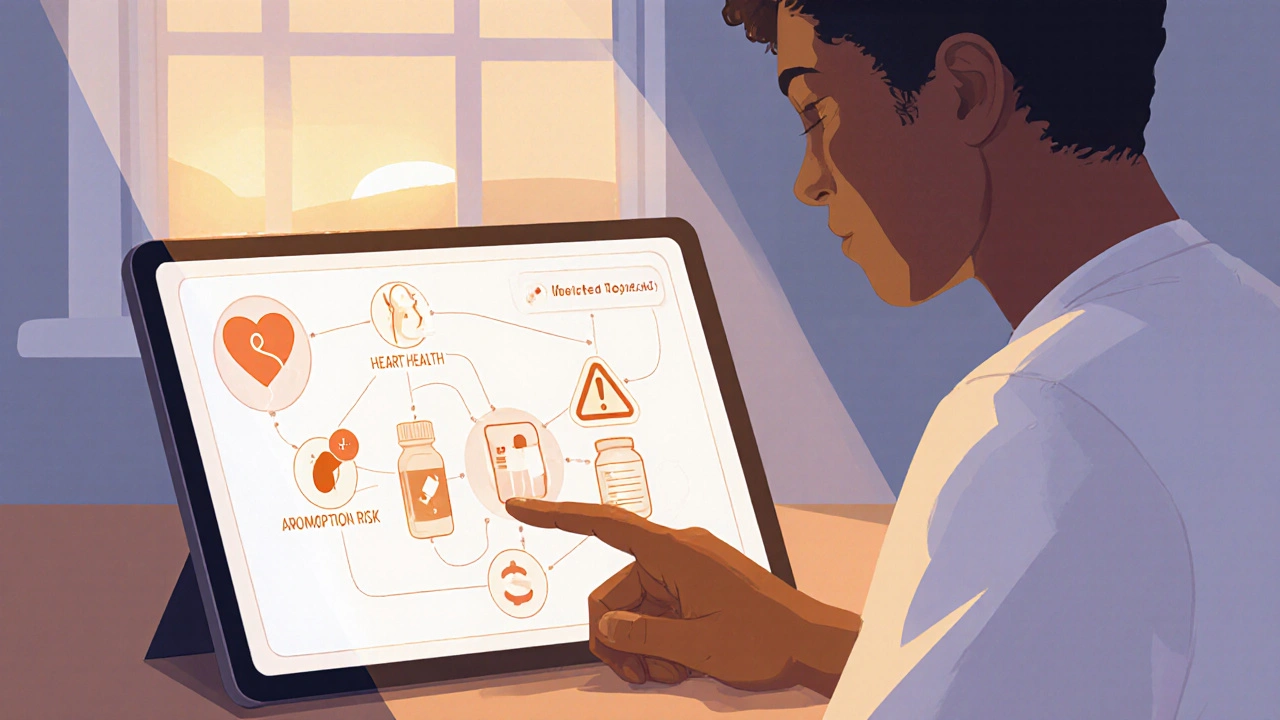Empagliflozin: What It Is, How It Works, and What You Need to Know
When you hear Empagliflozin, a prescription medication used to lower blood sugar in adults with type 2 diabetes. Also known as Jardiance, it doesn’t just help with glucose—it’s one of the few diabetes drugs proven to reduce the risk of heart failure and death from cardiovascular causes. Unlike older pills that force your body to make more insulin, Empagliflozin works by telling your kidneys to flush out extra sugar through urine. That’s it. No magic. Just science.
This means it’s not just for people struggling with high blood sugar. If you’ve got type 2 diabetes and also deal with heart problems, your doctor might pick Empagliflozin because it doesn’t just manage glucose—it protects your heart. It’s part of a newer class called SGLT2 inhibitors, a group of diabetes drugs that block sugar reabsorption in the kidneys. Others in this group include dapagliflozin and canagliflozin, but Empagliflozin has some of the strongest data behind it for heart outcomes. And unlike some diabetes meds, it doesn’t usually cause low blood sugar on its own, which makes it safer for many people.
But it’s not without trade-offs. Because it pulls sugar out through urine, you might notice more trips to the bathroom—or a higher chance of yeast infections. Staying hydrated matters. It’s also not for everyone. If you have kidney disease, are dehydrated, or have a history of diabetic ketoacidosis, your doctor will think twice before prescribing it. And while it helps with weight loss (most people drop a few pounds), it’s not a weight-loss drug. It’s a diabetes drug that happens to help with weight and heart health as side benefits.
People often wonder how Empagliflozin fits with other meds. It’s commonly paired with metformin, the first-line diabetes pill. But it also shows up in studies alongside insulin, GLP-1 agonists, and even blood pressure drugs like ramipril. You’ll find posts here that dig into how diabetes meds interact with things like caffeine, calcium supplements, and even diuretics like indapamide. That’s because managing diabetes isn’t just about one pill—it’s about how everything in your routine, from your coffee to your supplements, plays into the bigger picture.
You’ll also see posts about how drugs affect your body beyond glucose—like how some meds cause weight gain, trigger sun sensitivity, or mess with sleep. Empagliflozin doesn’t do those things, but it’s part of the same conversation: understanding how each pill changes your body, what to watch for, and how to stay safe. Whether you’re just starting on this medication or have been on it for years, the articles below give you real-world insights—not theory, not ads, just what people actually experience and what doctors know.

Empagliflozin vs Other Diabetes Drugs: In‑Depth Comparison
- Oct, 4 2025
- 14
In-depth comparison of Empagliflozin with other diabetes drugs, covering efficacy, heart/kidney benefits, side effects, costs, and which patients should choose each option.
Categories
- Health and Medicine (62)
- Health and Wellness (57)
- Medicine (37)
- Women's Health (11)
- Mental Health (9)
- Men's Health (7)
- Beauty and Wellness (4)
- Health Information (4)
Archives
- February 2026 (8)
- January 2026 (25)
- December 2025 (28)
- November 2025 (25)
- October 2025 (27)
- September 2025 (14)
- August 2025 (3)
- July 2025 (2)
- June 2025 (2)
- May 2025 (3)
- April 2025 (4)
- March 2025 (4)
- online pharmacy
- medication safety
- dietary supplement
- health benefits
- dietary supplements
- generic drugs
- prevention
- fertility
- online pharmacy Australia
- side effects
- QT prolongation
- medication side effects
- diabetes medications
- GLP-1 agonists
- nocebo effect
- brand vs generic
- treatment
- treatment options
- benefits
- connection
